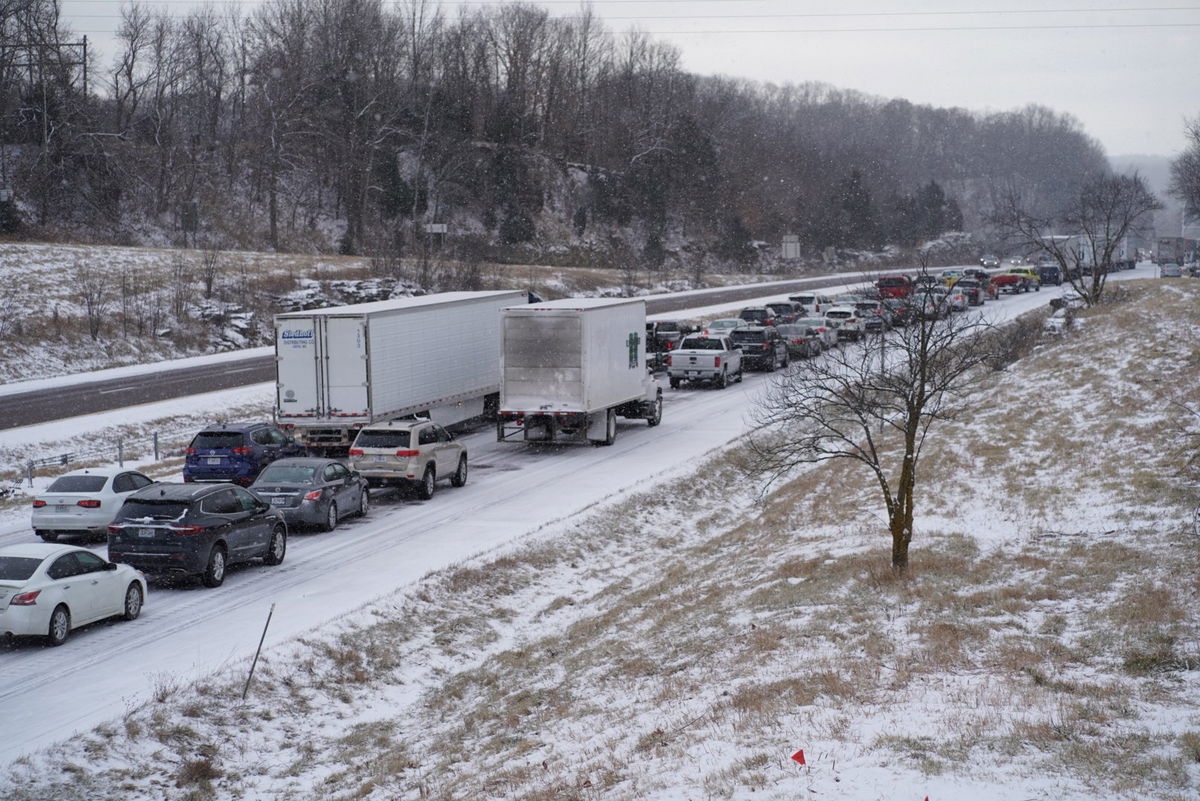Highway patrol: Slow down and look ahead in slick conditions

COLUMBIA, Mo. (KMIZ)
Missouri State Highway Patrol troopers were sent to 59 crashes Wednesday -- more than in any of the four previous winter weather events this year.
A patrol spokesman stressed the importance of slowing down and scanning ahead while driving when temperatures are this low, even when roads appear to only be wet.
Troop F Sgt. Scott White said that even though the roads may just look wet they can be dangerously slick, especially on bridges and overpasses. A crash on the Interstate 70 bridge over the Missouri River near Rocheport killed a Boonville woman Wednesday morning.
"The challenge that we have is notifying drivers out there," White said. "We can educate the public, we can put it on social media, we can do news reports, but a lot of people that travel over that bridge aren't from this area."
The patrol said when drivers see flashing lights they pay more attention, but Troop F doesn't have enough troopers to station them at problem areas such as the Missouri River bridge with their lights on.
White the patrol uses social media to alert the public what the roads look like and where the crashes or backups are. Those tools allow the message to reach more people over a wider area, he said.
"Information is power and when people know they're aware of what's going on out there on the highways they either take an alternate route or make sure that they give themselves plenty of time to get to work," White said.
Troop F said drivers should remember that semi-trucks take longer to stop, especially on snow-covered or slick roads.
"On the last several weather events we've had and the crashes we've had on the Missouri River bridge near Rocheport there have been semis involved," White said.
The patrol said since the bridge is so elevated that winter weather affects it more than roads at ground level, causing drivers to easily lose control.
"It's no secret that it takes semis longer to slow down and if they're approaching a traffic slowdown or traffic stoppage, that's when we see those secondary crashes with semis," White said.
White said secondary crashes could be reduced if drivers are prepared as they approach bridges.
"The problems we saw this morning on I-70 and (Highway) 63 were a lot of those secondary crashes where something minor may have happened," White said. "Someone spinning out and then that traffic was backing up and those people who weren't scanning ahead and then they were running off the road themselves or getting into collisions."
